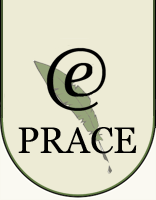
Emergence of drama and popular theatre on the Gold Coast
Drama
The typical Ghanaian drama, often called ‘institutional drama’, originally drew on English models such as Shakespeare, with elevated stages, written scripts, and audience-actor separation. It is strongly influenced by written literature, most often scripted and necessitates the presence of stage setting, including managers, technicians, and producers. When it was introduced to the Ghanaian audience by the British with their performances in Cape Coast during the early colonial era, it did not win recognition of the local people, since most of the performances had no relevance to Ghanaian everyday life and did not incorporate typical African performance like dance and music. Thus they managed to achieve some success only among the educated Ghanaian elite, which it was targeted at (Kerr 1995:31).
As the majority of the population did not find interest in the performances offered them by the colonial government, Ghanaian playwrights started creating a new type of drama, still drawing on the British example but instead of focusing on the elaborated script, they began incorporating Ghanaian dramatic influences, which attracted ordinary local people. One of the first Ghanaian playwrights involved in the development of Ghanaian drama was Efua Sutherland (1924-1966), a graduate from the School of Oriental and African Studies in London, a famous linguist and dramatist, who after returning to Ghana in 1950 began her career writing poetry and short stories. Sutherland was involved in the formation of the Ghana Association of Writers and the first completely Ghanaian literary magazine ‘Okyeame’. She held strong belief in the role of cultural education in national development (ibid 1995:32-40).
Sutherland strived to provide artists with a medium to present the general population with their works, which resulted in the establishment of the Ghana Experimental Theatre Project, a troupe which became popular performing stories of its founder. As the project became more and more successful, it expanded in 1961 into the Ghana Drama Studio, with its round stage patterned after a traditional Ghanaian courtyard, an item that eliminated the division between the actors and the audience typical of British theatre.
Sutherland was also a founder of a full-time drama company, Kusam Agoromba, a project which she used to promote the development of Ghanaian drama by incorporating vernacular languages into the performance. The dramatist succeeded in combining the more formal theatre movement with popular theatre by presenting Ghanaian folktales in a modern theatre setting (Salm 2002:70-71).
komentarze
Copyright © 2008-2010 EPrace oraz autorzy prac.